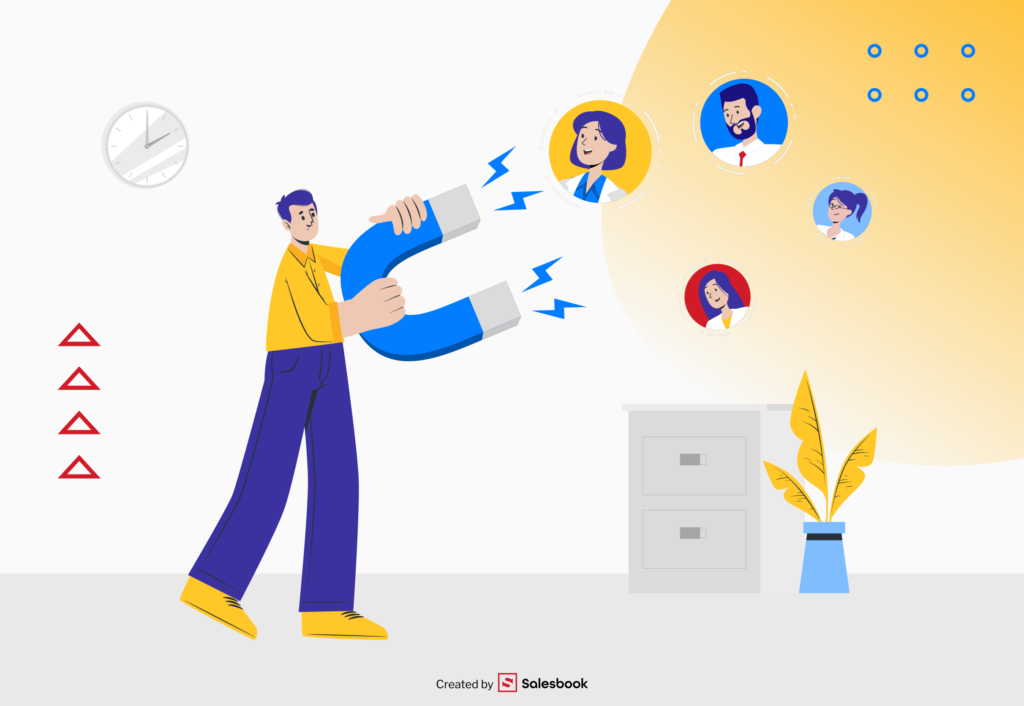CRM for the Solar Industry – The Key to Better Sales and Customer Service

Sales in the solar industry can be demanding. It includes many stages — from the first contact with a potential customer, through offer preparation, to signing contracts and after-sales service. If these processes aren’t well-organized, delays, mistakes, and lost opportunities can easily occur.
A lead that seemed interested suddenly “disappeared”? A client didn’t receive an offer on time and chose a competitor instead? Sales reps forgot about the follow-up, and the first unsuccessful attempt to reach out was also the last one?
These are typical problems for companies that manage their sales processes using Excel sheets, emails, and paper notes. At Salesbook, we understand the challenges solar companies face — that’s why we created a CRM system that fully meets the needs of the renewable energy industry.
Why is CRM simply essential in the solar industry?
The renewable energy sector, including solar, is growing rapidly. However, as demand increases, so does competition — and companies that fail to adapt quickly are left behind.
In such a dynamic environment, a CRM system becomes an indispensable tool. A well-implemented CRM helps organize and optimize the entire sales process, eliminating common problems such as:
- Lack of control over leads.
- No access to key information.
- Poor team coordination.
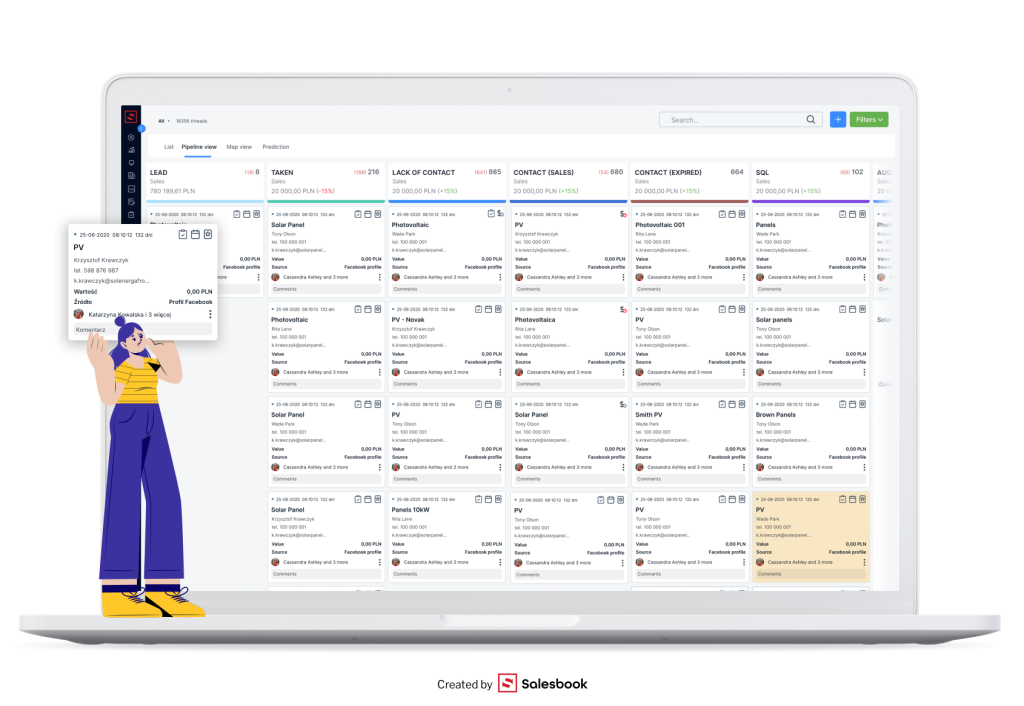
What does solar sales look like without a CRM system?
The solar market isn’t just about the boom in renewable energy — it’s also about growing competition and increasingly demanding customers. Every day without a structured sales management system means not only losing leads but also lowering the quality of customer service.
The most common problems in companies without CRM:
1. Lost leads and forgotten follow-ups
Example: a customer requests an offer, but no one contacts them for several days. During that time, they receive a proposal from a competitor and decide to go with them.
The reason? Lack of quick reaction and proper sales team organization.
2. No control over the sales funnel
Without CRM, it’s hard to determine what stage each customer is at.
Are they just exploring options? Waiting for an offer? Or has the decision been made, but the contract hasn’t been finalized yet?
3. Poor customer experience
Without CRM, every salesperson handles clients “their own way,” leaving the company without control over consistency and quality.
There’s often no contact history, so another team member can’t seamlessly continue the conversation.
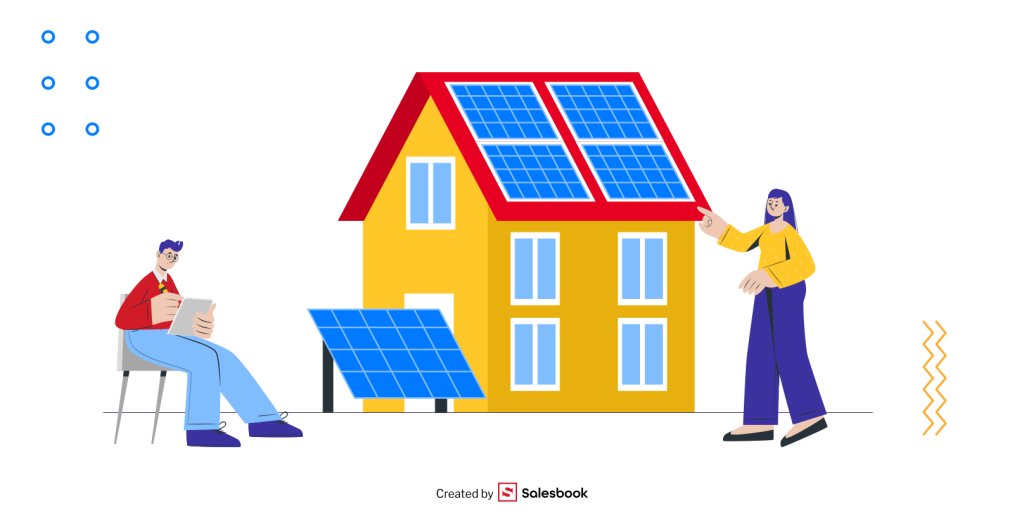
What are the benefits of a dedicated CRM for solar companies?
Businesses that implement a dedicated CRM for the solar industry immediately notice a difference in team organization and sales performance.
1. Process automation — less work, more sales
A CRM system eliminates manual data management and allows for automation, such as:
- Assigning leads to sales reps so no contact is missed.
- Quickly generating offers based on entered parameters.
- Sending reminders for follow-ups and next steps.
- Signing contracts online without printing or mailing documents.
Automation ensures smooth information flow across the company, allowing sales reps to focus on conversations — not paperwork.
2. Better contact management — full customer history in one place
All customer information is stored in one CRM platform:
- Contact history — who talked to the customer and what was agreed.
- Current stage of the sales process — waiting for an offer, analyzing options, or closing the deal.
- Customer’s unique needs — for example, interest in additional solutions like heat pumps.
Thanks to this, the system helps salespeople make faster, better decisions and tailor offers to real customer expectations.
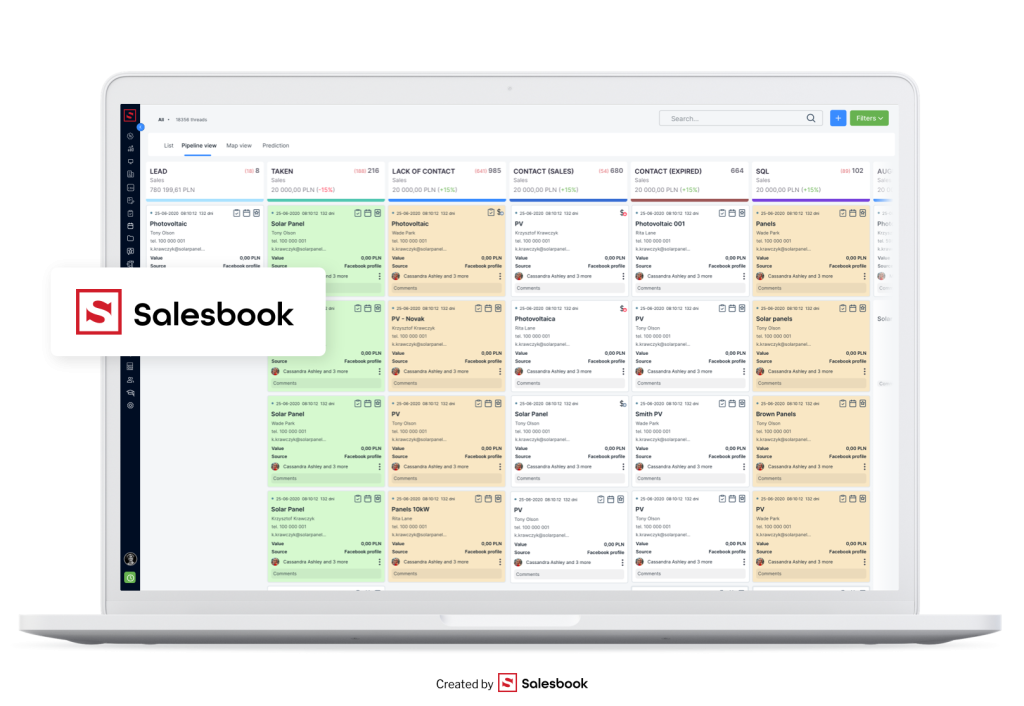
3. Higher sales efficiency — full control over performance
Using CRM enables companies to analyze sales effectiveness and make smarter business decisions.
- Reports show where deals tend to stall.
- Managers can see how many clients need follow-ups and how many are close to signing.
- It’s easier to forecast sales results and plan marketing actions.
Implementing a CRM system helps companies increase sales, improve customer experience, and stand out from the competition.
How does CRM transform the solar sales process?
Selling solar systems is a race — whoever contacts the lead first has the best chance to win the deal. A CRM system for solar companies not only speeds up sales but also helps avoid typical mistakes like losing leads, forgetting follow-ups, or providing inconsistent service.
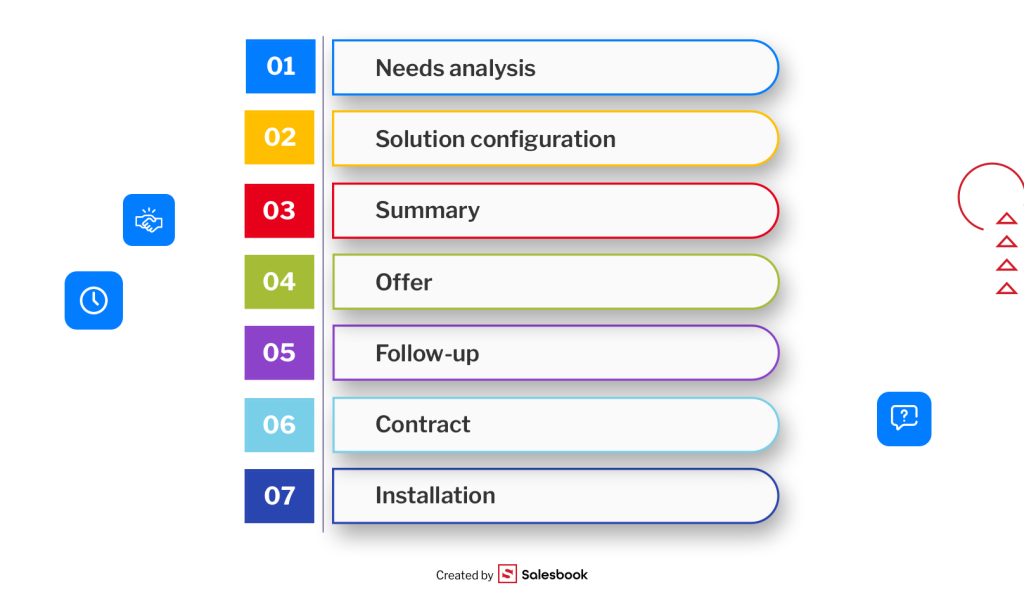
1. Lead acquisition and management
Many customers look for offers in several places at once. If you don’t respond within a few hours, a competitor will. A CRM system automatically collects leads from multiple sources — contact forms, ads, social media, and phone inquiries — and immediately assigns them to sales reps. No more losing good leads among hundreds of emails and scattered notes.

2. Monitoring the solar sales process
Imagine running a sales operation without knowing where your customers stand. Some are waiting for an offer, others for credit approval, and some for installation dates. Without proper control, this chaos leads directly to lost deals.
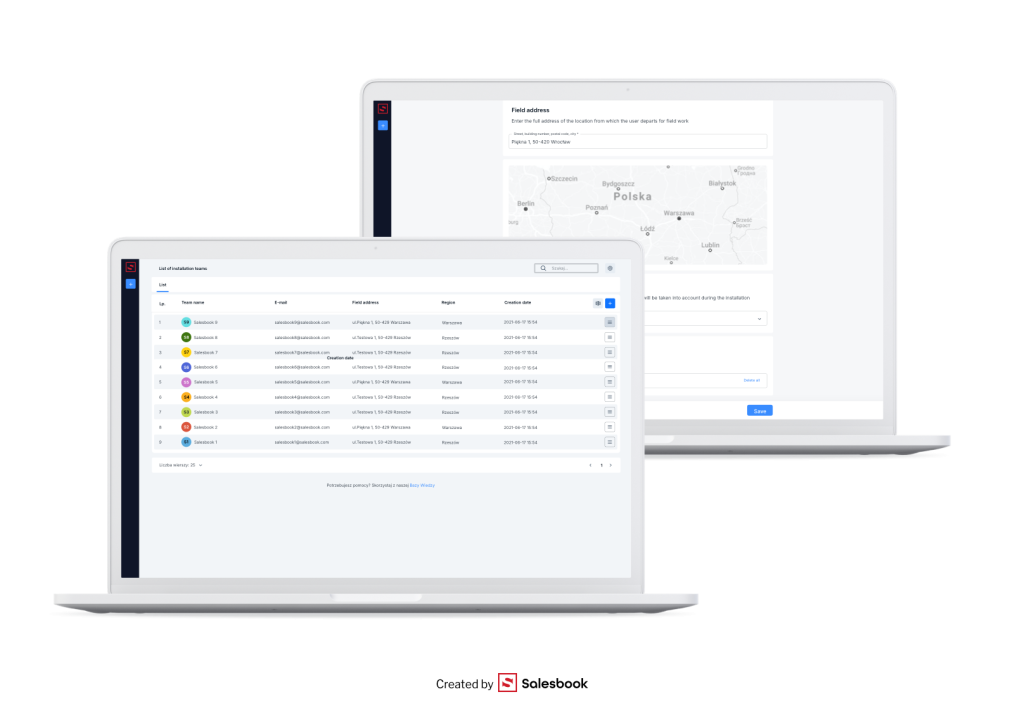
CRM acts like a roadmap: it shows where each customer is in the process, identifies bottlenecks, and helps sales teams take the right steps to speed up decisions.
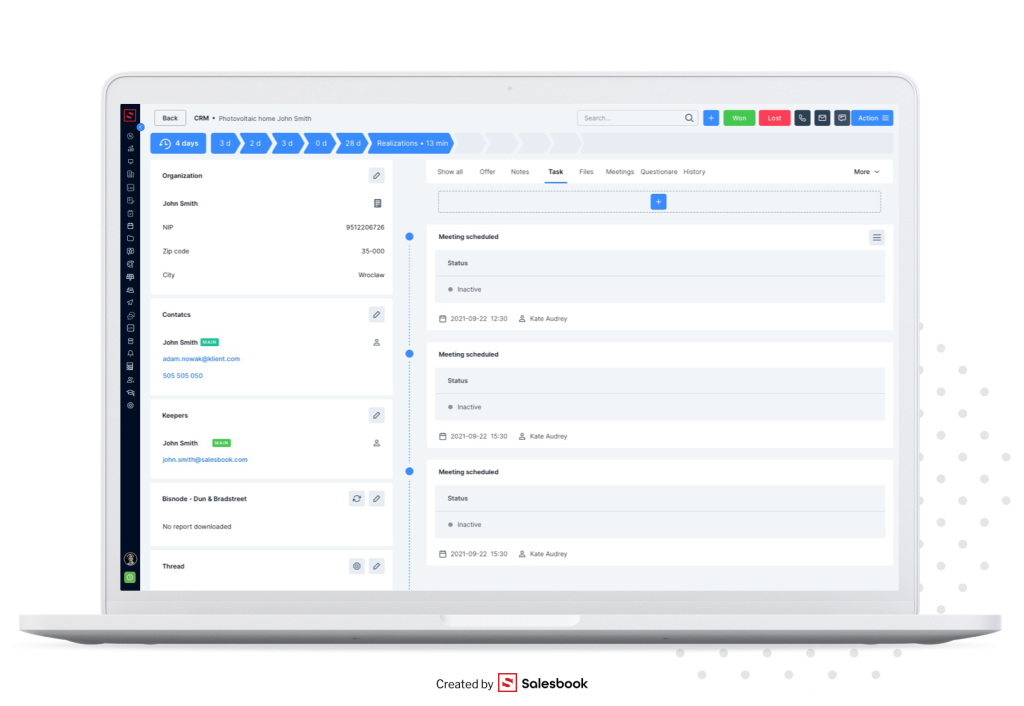
3. Automated follow-ups
Many customers say, “Give me a few days to think about it”… and then they disappear forever.
The problem? The salesperson forgot to call or send a reminder.
CRM solves this issue by automatically scheduling follow-up reminders at the right time.

4. Personalized customer service
Customers don’t want to feel like just another number on a list — they expect you to remember their needs. Thanks to CRM, every salesperson knows exactly who they’re talking to, what questions the client asked, and what concerns they had. The system records the full conversation history, notes, and preferences, ensuring every next interaction is smooth and professional.

How does CRM improve customer service quality?
Great customer service isn’t just about being polite — it’s also about speed. When a customer has to wait for an answer, call several times about the same issue, or explain their problem again, frustration grows. A CRM system eliminates these problems by providing instant access to all relevant information.
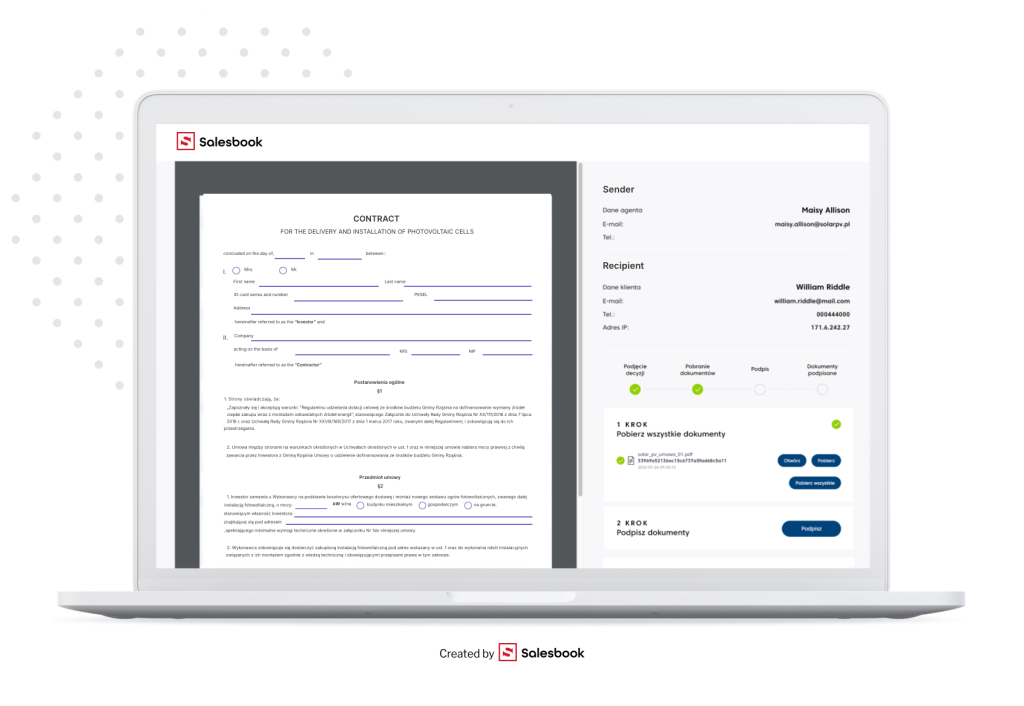
CRM as a customer knowledge base
There’s nothing worse than when a customer calls, and the consultant has no idea what the issue is because someone else handled it earlier.
CRM stores all customer data in one place, allowing any team member to instantly take over the conversation and provide support.
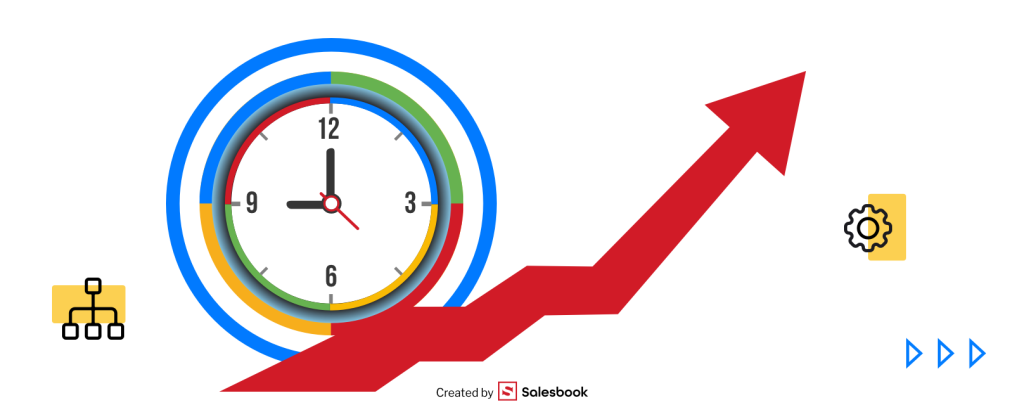
Automated communication
Customers appreciate companies that stay organized.
Automatic CRM notifications can remind them about:
- Upcoming system maintenance or service checks.
- Payment deadlines.
- Order or installation status.
As a result, customers feel that the company is proactive and treats their case as a priority.
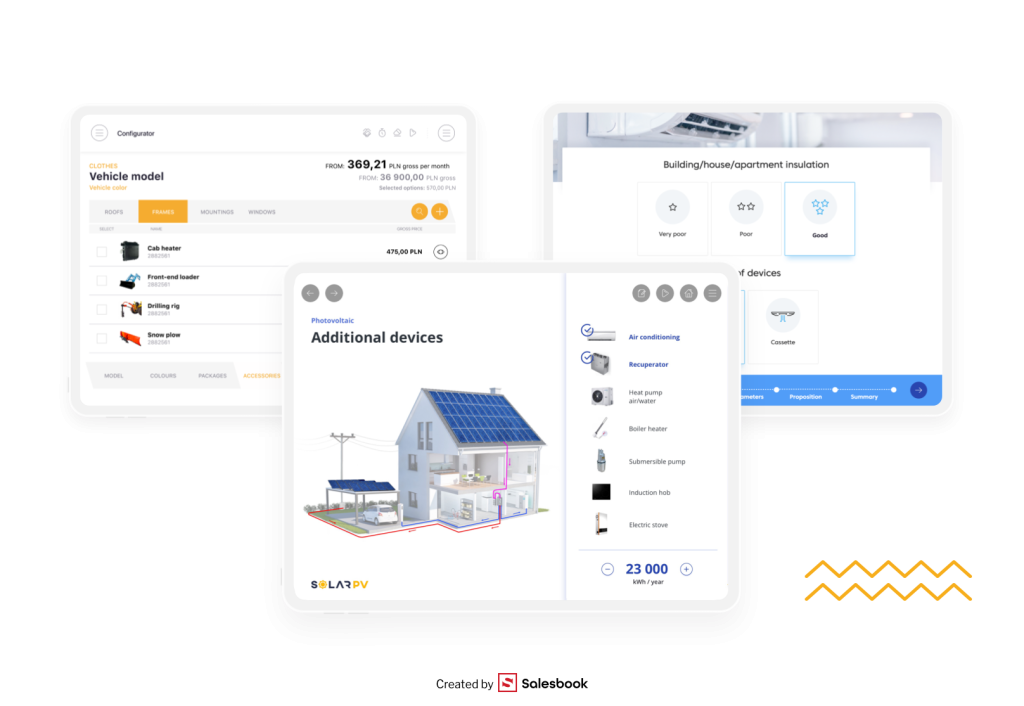
Faster response to inquiries and complaints
Every hour of delay in responding to an inquiry or complaint works against the company. CRM allows instant assignment of a case to the right person and provides immediate access to the customer’s history.
Benefits:
- No more passing customers from one person to another.
- Immediate issue resolution.
- Better brand reputation and higher customer loyalty.
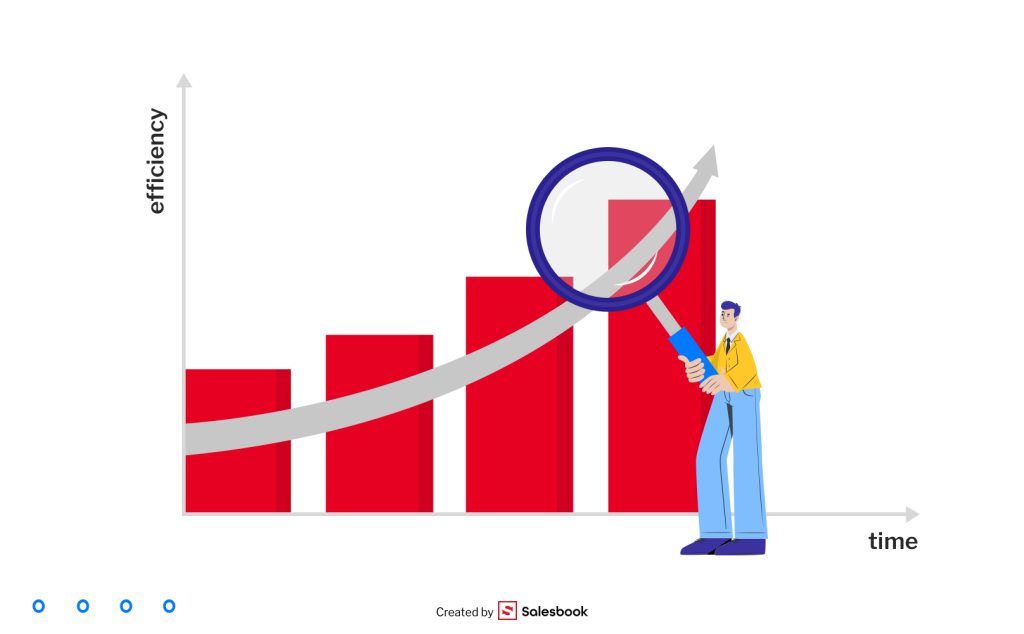
How to choose the best CRM for the solar industry?
Choosing a CRM system is like buying a car — it’s not enough that it “works.” It must be tailored to your business needs. In the solar industry, what truly matters is speed, process automation, and ease of use.
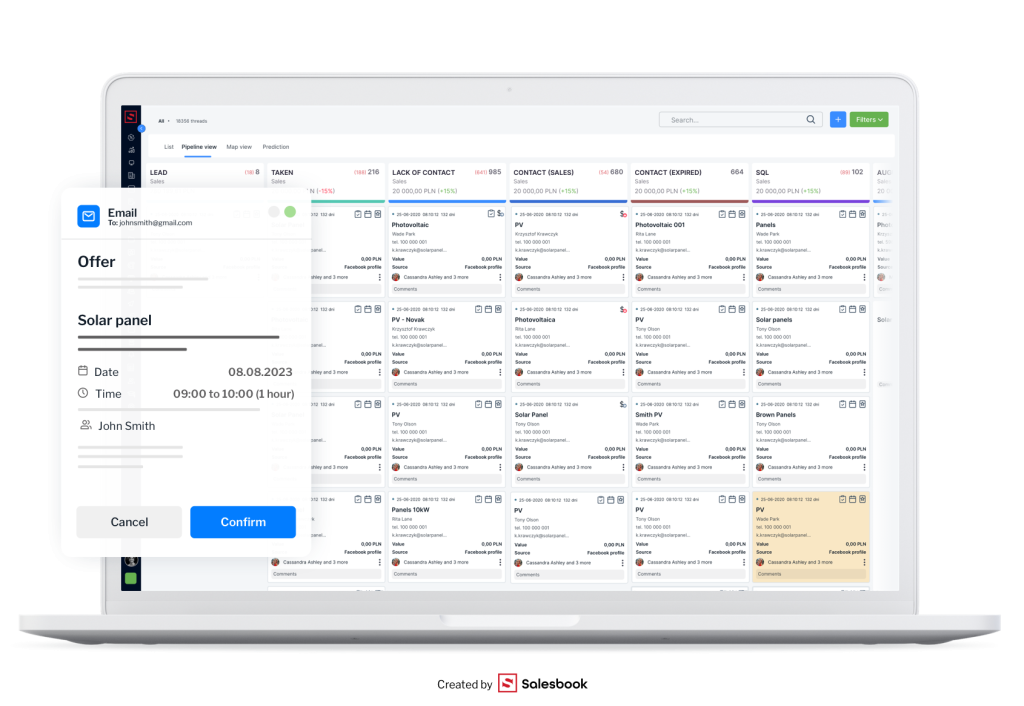
5 key features of a great CRM for the solar industry
Integration with marketing tools
Your sales reps shouldn’t waste time manually copying leads from ad campaigns or contact forms. A good CRM should automatically collect data from various sources — Facebook Ads, Google Ads, your website, or landing pages. This way, leads go straight into the system and can be handled immediately.
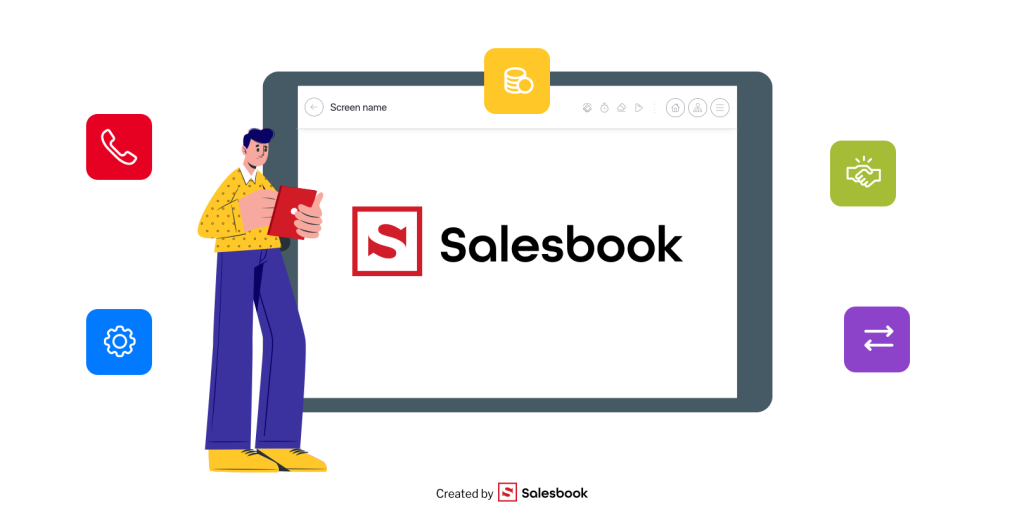
Automated reports and sales analytics
You should always have access to key sales data:
- How many clients are currently in your sales funnel?
- At which stages does the sales process most often get stuck?
- Which sales reps deliver the best results?
This data helps you not only analyze team performance but also continuously optimize the sales process.
Mobile app for field sales reps
The solar industry is built on fieldwork — salespeople visit customers, inspect installations, and discuss project details. If your CRM doesn’t have a mobile version, sales reps are forced to jot down quick notes that often get lost later.
Module for managing contracts, documentation, and installations
In the solar business, documentation is everything — contracts, approvals, funding applications, and installation plans. A good CRM should make it easy to store, search, and share these files so that everyone on the team has instant access. It should also allow you to plan next steps after signing a contract, such as scheduling installation.
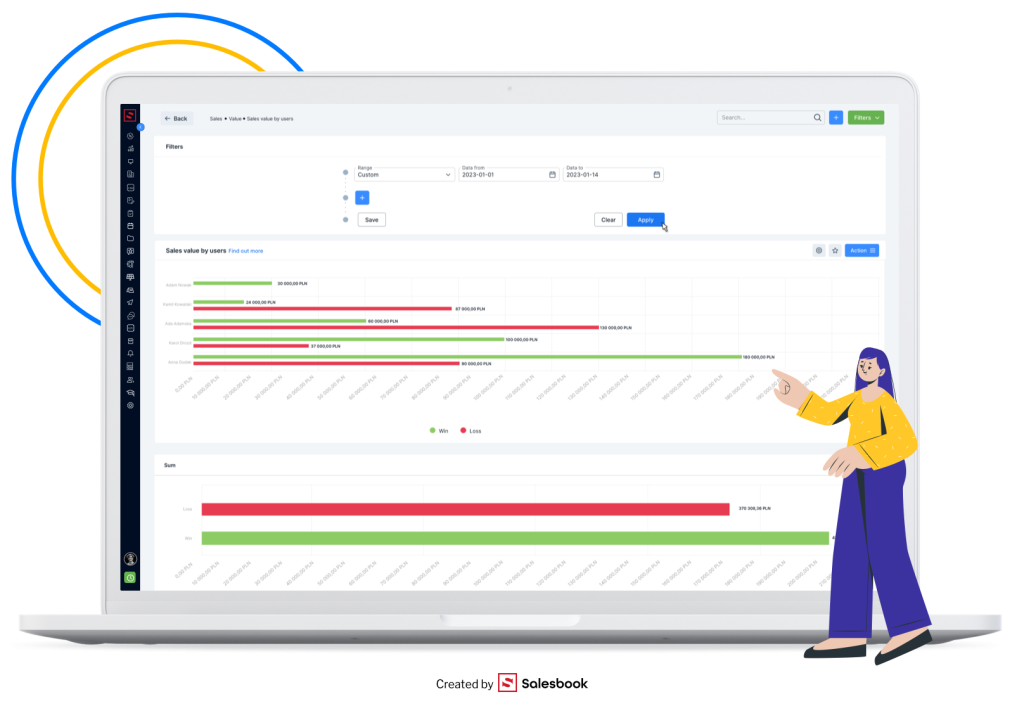
Customization options
Every company has its own way of working. Your CRM should allow you to tailor sales stages, lead statuses, automated reminders, and other functions to match your organization’s specific processes. Whether your company has a few or a few hundred sales reps, Salesbook CRM adapts flexibly to every client’s needs.
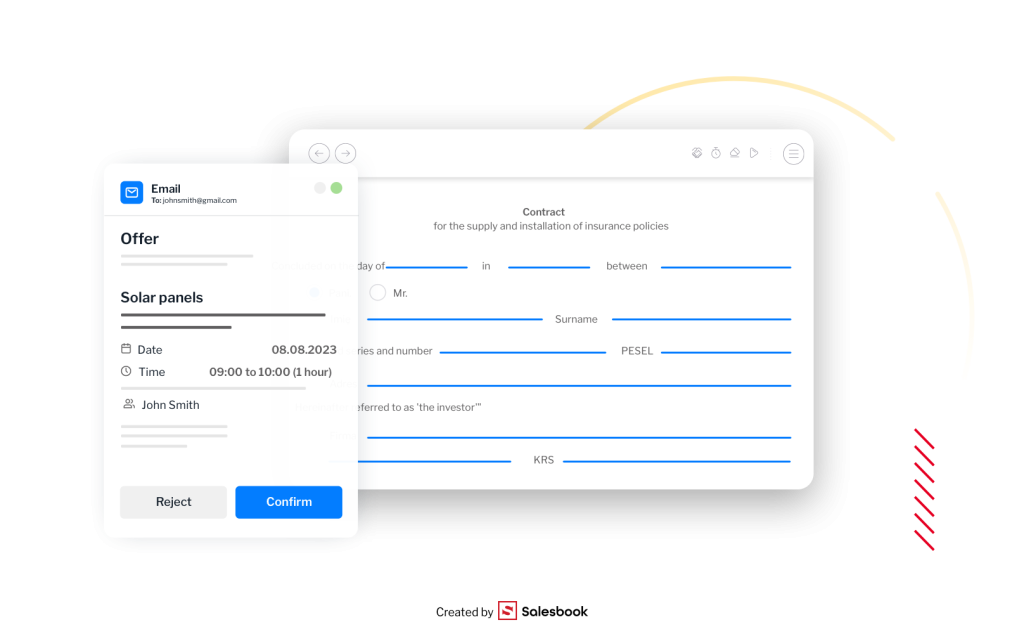
Is your company ready for the new era of sales?
Don’t wait until your competitors move ahead. Now is the best time to organize your processes and focus on what truly matters — growing your business and building long-term customer relationships.
Salesbook is the best CRM for the solar industry. Book a free demo and see why companies like Polenergia, Passive Instal, and many others have already trusted us.
Table of Contents


